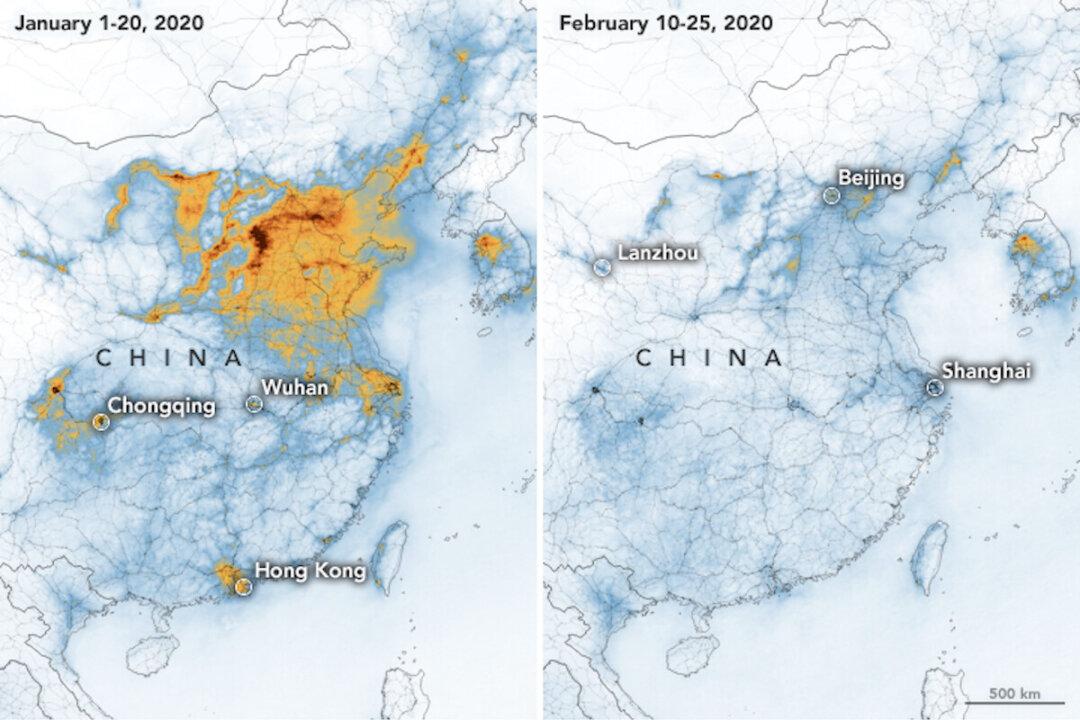Satellite images published by NASA and the European Space Agency (ESA) show a dramatic drop in levels of air pollution over China following the outbreak of the new coronavirus, which forced the shutdown of industry and transport.
Images taken by pollution monitoring satellites compare air quality between Jan. 1 and Jan. 20 with air quality between Feb. 10 and Feb. 25, and show a significant decrease in nitrogen dioxide (NO2), a toxic gas that gets into the air from the burning of fuel from vehicles, power plants and factories.




